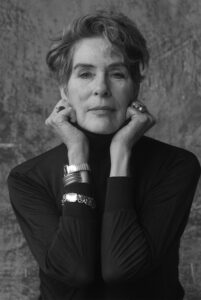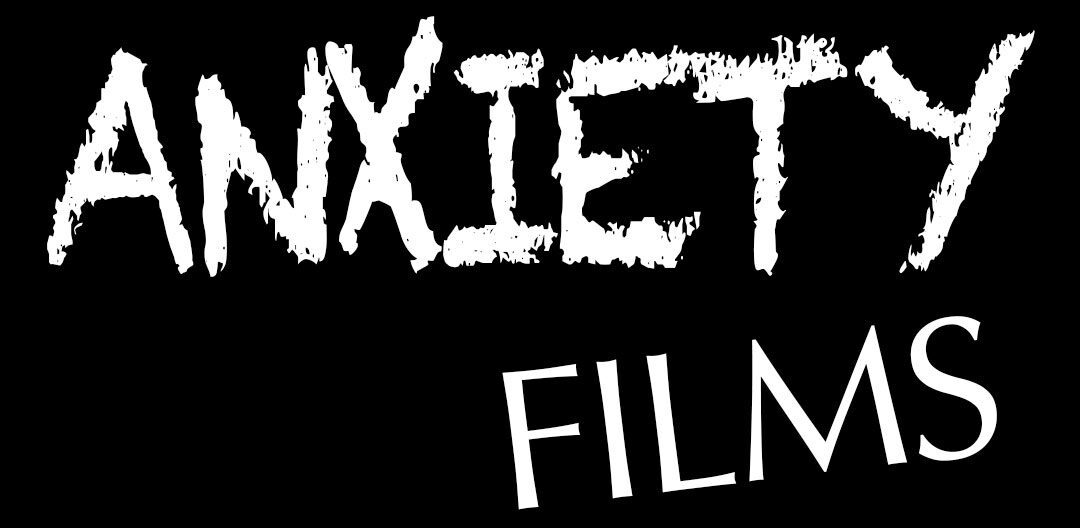
INTERVIEW WITH Barak Epstein and Mary Woronov by Eric S. Eichelberger
Barak Epstein: Prison A-Go-Go was shot in Dallas, Texas about two years ago and it’s been playing the festival circuit for about a year or so. So this is actually the eleventh outside festival screening we’ve had.
Mary Woronov: The reason I did this movie partially is because I like Barak and the other reason though is because I like doing independent movies. And I like doing very low low budget movies. And it’s probably because I got my start with Warhol and then went on to Deathrace Corman movies which were really low budget. And I guess I never really graduated to the top of scale although I did do Looney Tunes and I found it suffocating. But these kinda movies I love. There’s something about y’ know being asked to get into a phone booth and change your clothes, that excites me, what can I tell you, not having your own dressing room. I found his movie to be terrific. When I saw the movie the camera approached me on a little wheelchair..or a tripod.
Barak: We had a dolly. It was a Matthews studio dolly. It wasn’t a Fisher or anything but it was a Matthews Studio dolly.
Mary: The whole thing was fun. It was really really great. These are the kinda movies that I like because everyone pitches in together. Everybody knows what everybody’s doing. And it’s just a group effort. It’s just really good. And I think it shows in the movie. I mean, ya know. So that’s my excuse. Any questions, at all?
Eric: How long did you work on the movie?
Mary: Me or him? I worked one day. They not only shot everything but they shot more than everything. And then proceeded to use it in the movie. For instance, my laughter was not exactly in the script.
Barak: You only had a few pages of script and we shot, the day that Mary Woronov was here we didn’t really shoot anyone else. So we thought we might as well maximize the coverage so most of our shooting days were 18 or 19 hour days. We shot ten days and one of them was with Mary and then we finished all of our plain shots in like six hours and we were like, well do we do now?
Mary: They were fast. I like that too. They were fast. Also I like the one where he hands me the phone and just tells me to talk. That’s great.
Barak: Yeah, so Mary did a lot of ad-libbing and make it a little longer. We didn’t have the best craft service in the world but the day that Mary was there we were shooting at this prison. The prison location by the way was a prison that had since been closed down and converted into a restaurant. So it was a restaurant themed prison or prison themed restaurant..
.Mary: We were very hungry.
Barak: So the two days that we shot at this prison and all the prison scenes that you see…that was the best day we had craft service. We let everybody order off the menu. We had the restaurant downstairs. Every other day we were having peanut butter and jelly sandwiches with jellybeans. On that day –
Mary:We had good food that day.
Barak: It was expensive. I think we spent more on craft services on those two days than we did on the film stock.
Mary: So I think more people should hire me because I make them bring better food. Does anybody else have a question?

Eric: Can you talk about Paul Bartel?
Mary: He used to, after the movie was done in order to get publicity, insisted to tell everybody that we were married like we were in the movie. And this really annoyed me because I was not married to Paul and Paul would never marry me. And finally we were doing an interview in New York, a very important interview, and I told him, “Look Paul, you keep on lying about this and I’m not doing anymore interviews.” And Paul said, Okay, okay, just do this one interview. We can’t lose them. Just do this one interview and I won’t tell them we’re married. I promise, I promise that I will not tell them we’re not married. I have your word? And I said yeah. So we go in. We sit down at the table and the third question out of this lady’s mouth is, “So you’re married, aren’t you?” and Paul said, “Uh no, we’re divorced.” So I’m happy you think it’s funny.
Eric: I’m sorry, I came in late. Last year, we screened Sugar Cookies. Do you have any recollections…?
Mary: I just told everybody that if you saw it, I’d kill you. This is a movie that was done by my husband. So I’m married to this guy, right? And he decides, oh honey, I’m gonna make a movie and you’re gonna star in it and its going to be wonderful. Fine, what am I gonna play? Well, you play this lesbian who fucks this girl with a gun. Ya know? So I played this…I did it. Oh that’s great, but the reason you should look at Sugar Cookies is because its so sixties. It’s weird. It’s a weird movie. Oh and then my husband, right, all of a sudden, ya know, there’s this one scene with a big fat guy, I don’t remember. A big fat guy and there was this hooker. And he and the fat guy are, ya know, making love, they’re fucking. They’re fucking this hooker and the skinny guy and this fat guy and one of them is wearing black socks. And I look at the socks and it’s my husband. He’s put himself in the movie. Not only is he on top of this woman but he’s wearing black socks? I was so mortified. Jeez. I hate that movie.
Eric: Your favorite film that you worked on?
Mary: My favorite film is called Hellhole. I’ll tell you the one scene that I was crazy about. I think they cut it out of the movie though. But they had it in the movie when I know. Also, Ray Sharkey is in that movie and he is so high. He’s wonderful. So anyway, I own this insane asylum, and in the asylum there’s a lot of women with big tits and sneakers. So I start experimenting on them because, I don’t know, I had no idea what I was doing. But I was, I don’t know, maybe trying to help them along or, or…because I was evil, that’s right. So every time the experiment wouldn’t work, which was all the time, I would throw the reject which was hellhole which is a building there where eventually they eat me alive. So I’m taking these people around my insane asylum, trying to tell them, ya know, what a great place it is. Then make sure they don’t look at hellhole. And so there’s this one scene where all these big breasted women, girls, sorry, they were all under sixteen. Well, under eighteen. All these big breasted girls with sneakers are like swimming, like lying on their stomachs in the dirt and they’re going (makes swimming motions). And I look at them, there are about three of them, and I look at them, and say, “You know, we got rid of the swimming pool because sand is so much therapeutic.” That’s my favorite, favorite ad-lib. Anyway, Hellhole is amazing and that’s the scene of the great food fight where I come into the lunchroom because they are fighting with food and one look at me stops them.
Eric: What was it like working with Andy Warhol?
Mary: What was it like working with Andy Warhol? Well, I mean obviously it was fabulous to be part of The Factory and be like you know the hip new thing. But actually working doing a movie with Andy Warhol was quite frustrating because Andy did not direct, Andy did not talk, Andy didn’t do anything. Occasionally, he would go, “No, no, no.” He would manipulate people with a camera. He would position the camera like on an ashtray instead of on the person who was talking. He would move it around so that people became uncomfortable because they knew they weren’t on screen and they would act even more to try to track the camera. And then I wondered if he did do that or if that was just in my mind because it was so fucking nuts. I mean, it was just…it was very frustrating. There was no script. There was, except ya know, like in my scene in Chelsea Girls because Ronald Tavel wrote the script. But even when we had a script, no one else learned it. Just me. I was the only one who knew the script. So it was like, um, it wasn’t really acting. There was some brilliance in it like Non Deed was brilliant. Umm but working with Andy, you never got a sense of working with him. On the other hand, a movie never happened unless he was in the room. I remember doing Hedy Lamarr with Andy and what happened in Hedy Lamarr is that once again, I was the policeman. And I arrest Mario Montez’s Hedy for shoplifting and it was very simple. I walked over and I grabbed her arm and twisted it. And then, ya know, there was no dialogue or anything so we just stood there. And Andy said well the camera is still running. And so Ronnie Tavel who wrote the script, the little script there was, not knowing what to do, ran in front of the camera and was stuck and he put something in his mouth and pretended it was poison and then he died. He lay down on the floor and did a couple of convulsions and then died. And Andy said, the camera is still running. So he got up and died again. I mean…

Eric: How was it like working with Joe Dante and Allan Arkush?
Mary: Hollywood Boulevard is one of my favorite, favorite movies. I got to say lines that were incredible. Joe Dante and Allan Arkush did not ever stop me. “Oh, you wanna do that? Fine, fine, fine. Good, good, good, okay fine. Bye” They were so busy doing the movie that they had no time. Once again their movie…the whole reason they got to do this movie is they told Roger Corman, “Roger, look. We are your editors, Allan, Joe. We can do a movie in a week. All we have to do is use different parts from different movies. We can do a movie in a week and it won’t cost you a penny.” Fine. So I would do things like, they gave me this giant machine gun, ya know, and I would take this giant machine gun and go (imitates machine gun noises) and then they would show reams of thousands of Filipinos falling from trees from some other movie.
